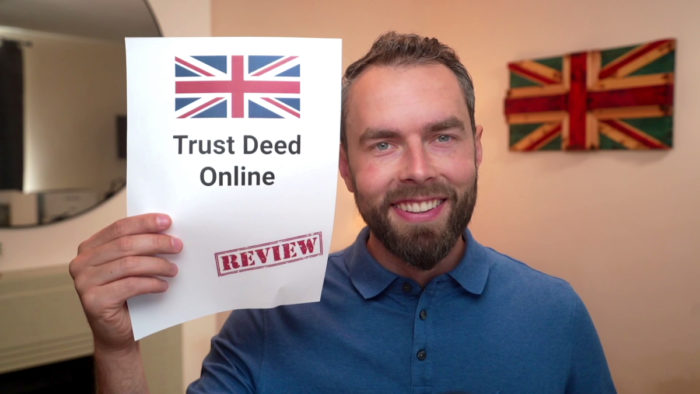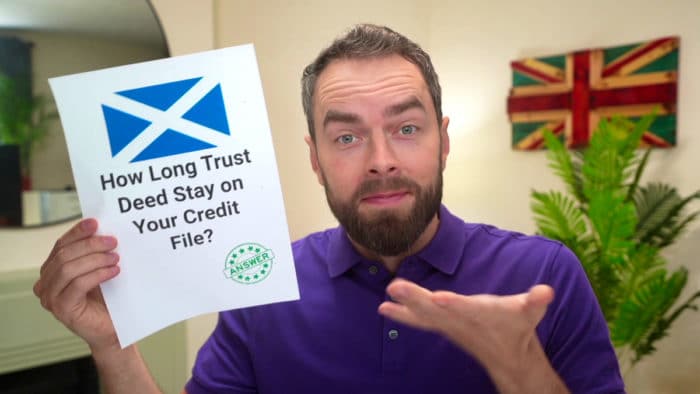Trust Deed Online – Everything You Need to Know
For free & impartial money advice you can visit MoneyHelper. We work with The Debt Advice Service who provide information about your options. This isn’t a full fact-find, some debt solutions may not be suitable in all circumstances, ongoing fees might apply & your credit rating may be affected.

For free & impartial money advice you can visit MoneyHelper. We work with The Debt Advice Service who provide information about your options. This isn’t a full fact-find, some debt solutions may not be suitable in all circumstances, ongoing fees might apply & your credit rating may be affected.
Are you curious about trust deeds online? Maybe you have one, or maybe you’re thinking about getting one. This article will help you understand what a trust deed is and how it works.
Every month, more than 170,000 people visit our website looking for guidance on debt solutions. They are concerned about their debts and want to know more about trust deeds. We understand your worries and are here to help.
In this article, we’ll explain:
- What a trust deed is
- How you can get a trust deed online
- The difference between a Trust Deed and a Deed of Trust
- Which debts can and cannot be included in a Trust Deed
- Other options if a Trust Deed is not right for you
We know what it’s like to have money problems. But don’t worry; our team knows a lot about debt. We can help you understand all about trust deeds.
How can you apply for a Trust Deed online?
- Establish your debt amount.
The most important first step is working out how much unsecured debt you have. Please note that you can only apply for a trust deed if you have unsecured debts that total up to £5,000 or more.
If you have debt that totals up to less than that, then you should look towards other debt solutions.
- Contact a debt professional.
Secondly, you should be seeking debt advice from a financial professional about whether a trust deed would be right for you.
While you can find this advice from professionals online, independent debt charities such as Stepchange or Payplan also have trained professionals who can help inform you about which debt solution would be best for you.
- Arrange an Insolvency Practioner for your case.
Once you’ve researched all of the debt solutions available to you in Scotland, and then determined that a trust deed is definitely the one to go for, you can start looking for an insolvency practitioner who will act as the trustee in your trust deed.
You can find an appropriate online insolvency practitioner in Scotland who will help you set up your trust deed, and they will offer to have online calls in order to discuss what the monthly payments of your trust deed are going to look like.
Your IP (insolvency practitioner) will be able to provide you with adequate debt advice about what your monthly payments are going to look like. When it comes to trust deeds, monthly payments will depend on how much you can afford.
What other options are there for arranging trust deeds online?
If you need a second opinion about your monthly payments, you can look up calculators for trust deeds online. A trust deed calculator will be able to give you an approximate calculation of how much you will pay in monthly installments towards your creditors, depending on how much debt you have.
Not only that, but a trust deed calculator can also tell you how long your trust deed is going to take in order to be complete.
Can I arrange a protected trust deed online?
If you’re a homeowner and/or have other valuable assets, then they will be handed over to your trustee, who will judge whether they should be sold off in order to raise money for your debt repayments or not. However, you might be able to set up a type of protected trust deed online which would not include your home.
Please note: A trust deed in Scotland becomes a protected trust deed if the majority of creditors are happy with its terms. A protected trust deed would mean that your creditors would not be able to take any further legal action against you in order to recover money from you. It would be legally binding.
Once your monthly payments are in order, your IP can call an online meeting with your creditors and present the terms of your trust deed to them.
How a debt solution could help
Some debt solutions can:
- Stop nasty calls from creditors
- Freeze interest and charges
- Reduce your monthly payments
A few debt solutions can even result in writing off some of your debt.
Here’s an example:
Situation
| Monthly income | £2,504 |
| Monthly expenses | £2,345 |
| Total debt | £32,049 |
Monthly debt repayments
| Before | £587 |
| After | £158 |
£429 reduction in monthly payments
If you want to learn what debt solutions are available to you, click the button below to get started.
What is the difference between a Deed of Trust and a Trust Deed?
Trust Deed:
A trust deed in Scotland is a voluntary agreement between you and the people to whom you owe money (your creditors). It states that you will make affordable monthly payments towards your debt for an agreed-upon period of time (typically 4 years), and after this time, any remaining debt that you have will be written off.
It’s a process backed by the Scottish government that is easily accessible to Scottish residents who have a debt of £5000 or more.
Deed of Trust:
Albeit similar in name, a deed of trust is something completely different and not related at all to a trust deed.
A deed of trust is a significant record (governed by The Trustee Act 2000) in which trustees are delegated to hold the property for beneficiaries.
A Deed of Trust can be utilized to state how a property is owned.
It’s very easy to get confused when you’re researching information regarding trust deeds on the internet. Hence, be vigilant and ensure you’re not reading up on the wrong information.
Is a Trust Deed a good idea?
Whether or not a trust deed is a good idea for you depends entirely on your financial situation.
Many people prefer trust deeds when they know they’re going to be able to get a hefty chunk of their debt written off.
On the other hand, if you have unsecured debts that are much lower and can be dealt with in a shorter amount of time than 4 years, then maybe a trust deed would not be the right option for you.
You should make this decision depending on the amount of money you owe, and I would also recommend contacting a financial professional to help with the decision-making process.
Thousands have already tackled their debt
Every day our partners, The Debt Advice Service, help people find out whether they can lower their repayments and finally tackle or write off some of their debt.

Natasha
I’d recommend this firm to anyone struggling with debt – my mind has been put to rest, all is getting sorted.
Reviews shown are for The Debt Advice Service.
Which debts can you include in a Trust Deed?
A trust deed can include most types of unsecured debts, and some secured debts.
Examples of debts which can be included in a Scottish Trust Deed:
- Rent arrears (although it may be a problem if you are still living in the property).
- Shortfall on mortgage or car hire purchase following repossession.
- CSA arrears (you must pay ongoing maintenance).
- Personal guarantees, if crystallised.
- Outstanding car parking charges.
- Overpaid tax credits due to HMRC.
- HMRC debts (PAYE, NIC & VAT).
- Overpayment of DWP benefits.
- Personal loans.
- Council tax debt.
- Credit card debt.
- Overdrafts.
- Store cards.
Which debts cannot be included in a Trust Deed?
Examples of debts which cannot be included in a Scottish Trust Deed:
- Secured loans, mortgages, hire purchases and any other loan secured on a property, motor vehicle, or home furnishings.
- Fines which have been issued by the Court.
- Debts which have been obtained fraudulently.
- Crisis loans from the DWP’s Social Fund.
- Student loans.
- Child Support Arrears.
- TV Licence Arrears.
- Mortgages.
What other options are there if I can’t get a Trust Deed?
A trust deed is definitely a great debt solution for Scots, and there is a huge amount of information you can find related to it online. Not only that, but you can even set up a trust deed for your debt(s) from the comfort of your own home.
Just be sure to only deal with trustworthy agencies that are authorised and regulated by the Financial Conduct Authority (FCA).
However, if after some research, you find that a trust deed isn’t suitable for you (like the forum user below), there are other solutions available:

- Individual Voluntary Arrangement (IVA): A voluntary agreement with your creditor to pay off all your debts through monthly payments.
- Debt Arrangement Scheme (DAS): A scheme set up by the Scottish government to pay off debts. In this case, your interest and charges are frozen. However, this could affect your credit rating.
- Sequestration: You will be expected to make payments over a period of time only if you can afford them.
- Debt Consolidation Loan: Withdrawing new credit to pay off your current credit.
I would suggest you contact your trustee for debt advice. They will evaluate your financial situation and suggest the best way to pay off your unsecured debts.


